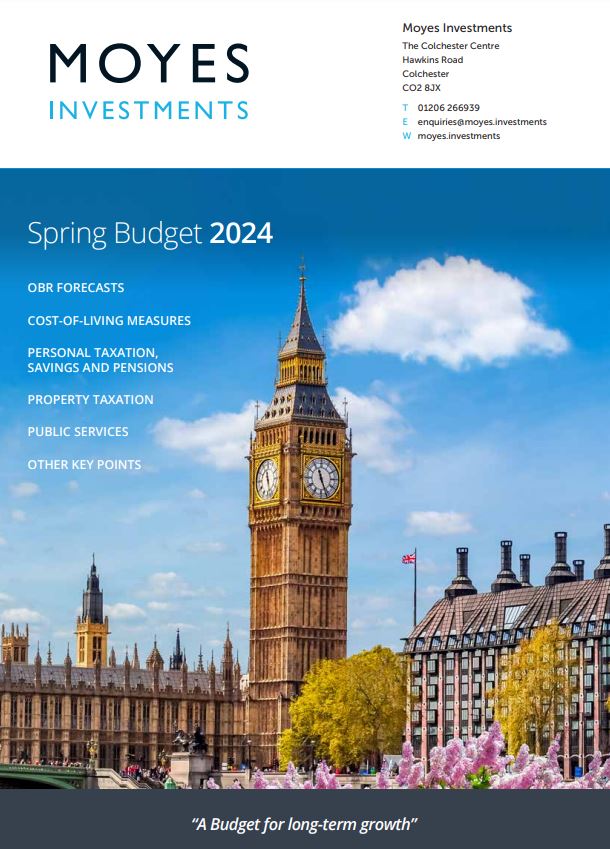
On 6 March, Chancellor of the Exchequer Jeremy Hunt delivered his Spring Budget to the House of Commons declaring it was “a Budget for long-term growth.” The fiscal update included a number of new policy measures, such as a widely-anticipated reduction in National Insurance, abolition of the non-dom tax status and new savings products designed to encourage more people to invest in UK assets. The Chancellor said his policies would help build a “high wage, high skill economy” and deliver “more investment, more jobs, better public services and lower taxes.”
OBR forecasts
During his speech, the Chancellor declared that the economy had “turned the corner on inflation” and “will soon turn the corner on growth” as he unveiled the latest economic projections produced by the Office for Budget Responsibility (OBR). He started by saying that they showed the rate of inflation falling below the Bank of England’s 2% target level in “a few months’ time.” He noted that this was nearly a year earlier than the OBR had forecast in the autumn and said this had not happened “by accident” but was due to “sound money” policies. The Chancellor also noted that the OBR forecast shows the government is on track to meet both its self-imposed fiscal rules which state that underlying debt must be falling as a percentage of gross domestic product (GDP) by the fifth year of the forecast and that public sector borrowing must be below 3% of GDP over the same time period. Indeed, in relation to the second rule, Mr Hunt pointed out that borrowing looks set to fall below 3% of GDP by 2025/26 and that by the end of the forecast period it represents the lowest level of annual borrowing since 2001. In terms of growth, Mr Hunt revealed that the updated OBR
projections suggest the UK economy will expand by 0.8% this year, marginally higher than the fiscal watchdog’s autumn
forecast. Next year’s growth rate was also revised upwards to 1.9% compared to the 1.4% figure previously predicted.
Cost-of-living measures
The Chancellor also announced a series of measures designed to help families deal with cost-of-living pressures. These
included: an extension to the Household Support Fund at current levels for a further six months; maintaining the
‘temporary’ 5p cut on fuel duty and freezing it for another 12 months; an extension of the freeze in alcohol duty until
February 2025; an extension in the repayment period for new budgeting advance loans from 12 months to 24 months, and abolition of the £90 charge for a debt relief order.


)




